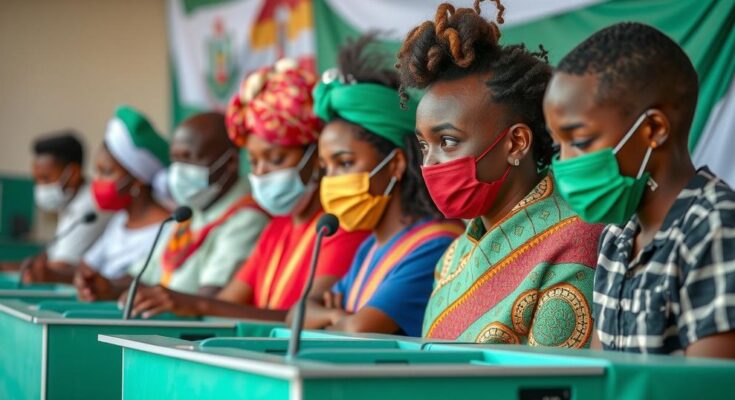Voters in Comoros are electing representatives to a 33-seat parliament amid allegations of electoral irregularities surrounding President Azali Assoumani’s rule. Approximately 338,000 individuals are registered to vote, and results are expected by Friday. Opposition factions exhibit divided strategies regarding participation, citing concerns over authoritarianism and potential nepotism in Assoumani’s leadership.
Voters in the Comoros archipelago are preparing to head to the polls to elect representatives to its 33-seat parliament. This electoral event follows a controversial re-election of President Azali Assoumani, which has been criticized by the opposition for alleged irregularities. Polling stations opened on Sunday for approximately 338,000 registered voters, amidst claims of a weakened ruling regime, leading to divergent strategies amongst opposition parties regarding electoral participation.
The parliamentary elections mark the first since January 2020, with nearly 100 candidates approved by the Supreme Court to compete. Notably, President Assoumani, who has held power since 1999 following a coup, has been accused by his adversaries of authoritarian tendencies. Reports suggest that Assoumani is also positioning his son, Nour El-Fath, for a potential succession upon the completion of his term in 2029, following the delegation of significant governmental powers to his son earlier this year.
Some opposition factions, including Juwa, led by former President Ahmed Abdallah Sambi—who was sentenced to life imprisonment in 2022—have urged a boycott of the elections. However, others believe participating will help unveil the regime’s shortcomings and hasten its decline. Hamidou Karihila from the opposition Hope of the Comoros party expressed that involvement in the elections could reveal the flaws of the current governance, thereby contributing to a necessary change. Final election results are anticipated by the end of the week.
The Comoros archipelago, located in the Indian Ocean, has undergone significant political turmoil since President Azali Assoumani first seized power via a coup in 1999. His administration has faced repeated challenges from various opposition groups, particularly following contentious elections marred by allegations of fraud. The dynamic surrounding the upcoming elections reflects ongoing societal debates about governance, political transition, and the influence of Assoumani’s family within the state’s future governance. The current electoral climate is characterized by a mix of dissent against perceived authoritarianism and strategic maneuvering among political factions.
In conclusion, as voters in Comoros prepare to select their parliament amidst allegations of electoral misconduct, the events reflect a critical junction in the nation’s political landscape. With President Assoumani’s controversial rule facing scrutiny and the opposition divided on electoral strategies, the outcomes of these elections may not only redefine parliamentary representation but also influence the broader trajectory of governance in the archipelago.
Original Source: www.thesenior.com.au




